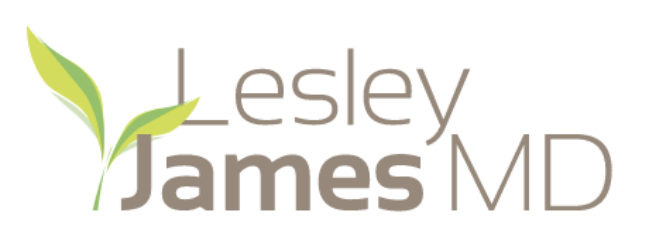The term “immune-boosting” has been a pet peeve of mine for a number of years, as it falls into the category of health trends with no medical backing. I suspect the concept stems from vaccine literature, referencing a “booster” as an additional dose of vaccine given to re-expose a patient to the immunizing agent.
While we would all like to believe that we can surcharge our immune systems with supplements and juices to avoid contracting the Coronavirus (or any virus, for that matter) and minimize its impact, there is little to no evidence that we can improve upon or boost a normal or healthy immune system to work more efficiently.
What we do know is that a healthy immune system response requires that we eat a healthy diet, exercise, get enough sleep and manage stress (I will expand on each of these soon), and that we really can’t improve upon a normal immune system. We also know that poor health habits definitely have a negative effect on immune function.
The same is true of the aging immune system. Unfortunately, the effects of aging on the immune response appear to create a number of changes that are reported to increase one’s susceptibility to COVID-19, and, in fact, attempting to stimulate the immune system could potentially be harmful. In facing the possibility of contracting COVID-19, the best strategy for those over the age of 65 is avoiding others and continuing to maintain a healthy lifestyle.
About the Immune System
The immune system is complex and quite amazing. Mind-boggling, really. It comprises two coordinated systems of immunity — innate and adaptive — which work together and are made up of many different subsystems.
Innate immunity is the natural protection that we are born with and our first line of defense to combat infection. Upon detecting a threat, such as a virus or bacteria, our innate response reacts quickly with chemically-mediated responses such as increasing mucus production in order to create a barrier or flush the threat, increasing temperature with a fever, etc. This response can sometimes go awry, causing what has been coined “cytokine storm,” an overwhelming immune response thought to be the cause of acute lung injury and acute respiratory distress syndrome. It is actually an overreaction of the immune system and can be fatal. Another malfunction of the innate system is the inability to “shut off,” or contain inflammation, resulting in a troublesome condition known as chronic inflammation, which is thought to be the root cause of a number of chronic diseases.
Adaptive immunity is the protection that we gain throughout life, as we are exposed to diseases or protected against them via vaccines. The adaptive system detects threatening antigens (parts of a virus or bacteria) and produces very specific antibodies and a chemical response, which destroys and eliminates them from our bodies. This process can take from five to 10 days to identify the antibodies that are needed and produce them in the quantity necessary to eliminate the infecting intruder. During this time, the innate system keeps the pathogen at bay and prevents it from multiplying.
Additional components of our immune system:
- Antibodies
- The Complement system
- Blood components/cells
- Proteins and receptors
- The Toll system
- Many other non-specific systems
The Aging Immune System
The effects of aging on the immune system functionality are widespread, but the elderly are by no means immunodeficient. While each individual is different, there may be a demonstrated reduction and function of a number of key cells in the elderly, and increased vulnerability to both new and previously encountered antigens. One element that is overlooked when we discuss the aging immune system is inflammation, even “inflammaging,” a condition in which there is an accumulation of inflammatory mediators in the tissue of the immune system and microenvironment. The dichotomy of the aging immune system is that there is both under activity and over activity, and here again this over-reactivity in terms of inflammatory response can be a part of the overwhelming cytokine response, which can be life-threatening and play a role in acute lung injury and acute respiratory distress syndrome that can accompany viral illnesses such as COVID-19, SARS, MERS, and others. This overwhelming response is a good example of why we would not want to “boost” the immune system.
Because it appears that inflammatory cytokines play a role in the pathogenicity of COVID-19 and because it is difficult to predict which individuals are susceptible to the “cytokine storm,” I would recommend avoiding what are thought to be immunostimulatory agents, which stimulate certain aspects of the immune system and increase cytokines. Examples of these are:
- Elderberry (Sambucus nigra)
- Medicinal mushrooms
- Echinacea
- Vitamin D
We all have experienced a time in our lives when we could have taken steps to live healthier. College students, for example, tend to get sick more often due to increased exposures, poor nutrition, high stress, and other factors. Having a healthy immune system does not mean that we never get sick, but that our system responds effectively and quickly, contains what is necessary to identify and eliminate threats from our bodies, and activates the responses necessary to prepare us for the next encounter. As there are no clinical, evidence-based integrative prevention or treatment strategies for the COVID-19 infection, avoiding others and living well are currently our healthiest options.
Worth Reading
Beam, Darin M., Camargo Jr. MD, DrPH, Carlos A., Courtney MD, D. Mark, et al., Factors Associated With Positive D-dimer Results in Patients Evaluated for Pulmonary Embolism, National Institutes of Health/2010
Belluz, Julia, Irfan, Umair, Why Covid-19 is so dangerous for older adults, Vox.com/2020
Berent-Maoz, Beata, Dorshkind, Kenneth, Montecino-Rodriguez, Encarnacion, Causes, consequences, and reversal of immune system aging, The Journal of Clinical Investigation/2013
Braciale, Thomas J., Hahn, Young S., Immunity to viruses, National Institutes of Health/2013
Craig, Ruth, Why Did the 1918 Flu Kill So Many Otherwise Healthy Young Adults?, Smithsonian Magazine/2017
de Faria, Andre Oliviera Vilela, Ghezzi, Pietro, Macedo, Arthur Cassa, Boosting the Immune System, From Science to Myth: Analysis the Infosphere With Google, Frontiers in Medicine/2019
Farrar, Jeremy, Korth, Marcus J., Katzea, Michael G., et al, Into the Eye of the Cytokine Storm, Microbiology and Molecular Biology Reviews/2012
Fox, Maggie, Here’s How the Flu Kills Some People So Quickly, NBC News/2018
Laing, Kerry, Immune responses to viruses, British Society for Immunology
Zhang, Sarah, Why Some Flus Are Deadliest in Young Adults, The Atlantic/2016


